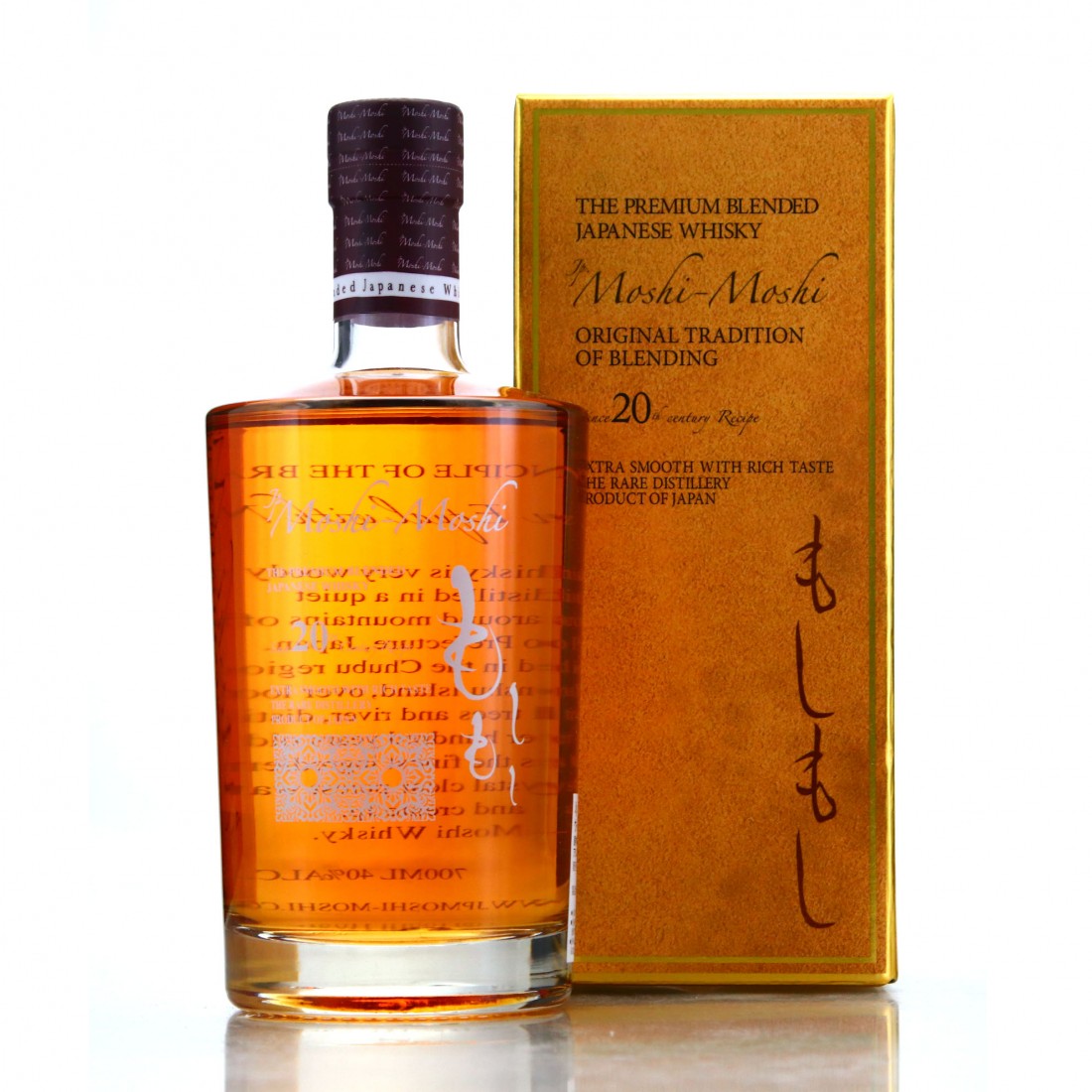Moshi Moshi Moshi Moshi - A Japanese Greeting's Cultural Path
That distinctive sound, the one that often kicks off a phone call or gets someone's attention in Japan, is rather interesting, you know? It is a pair of words, repeated, that somehow just sticks in your mind. For many, it is the first Japanese phrase they ever come across, a simple echo that seems to carry a good deal of meaning. People hear it in films, in cartoons, or maybe even when talking to someone from Japan, and it just sounds like a natural way to begin.
This little expression, "moshi moshi," does a good job of showing how language and customs are deeply connected. It is more than just a quick hello; it is a way people connect, a sort of signal that says, "I am here, are you?" It has a history that stretches back, a story of how people used to talk and how they still do, in a way.
So, as a matter of fact, this seemingly small greeting has a bigger story to tell about how people communicate and how cultures shape the words we use. It is a bit like a tiny window into the way Japanese society works, how politeness is shown, and how people make sure they are truly heard.
- Parker Worth
- Jessica Osbourne Parents
- Audra Diane Mari
- Richard Hilton
- Melanie Renee Family Of 11 Net Worth
Table of Contents
- The Sound of Connection - Moshi Moshi's Origin Story
- What is the True Meaning Behind Moshi Moshi?
- How Did Moshi Moshi Become So Common?
- The Evolution of Moshi Moshi - From Telephone to Daily Life
- Why Do Japanese People Say Moshi Moshi on the Phone?
- Is Moshi Moshi Still Relevant Today?
- The Global Reach of Moshi Moshi - Beyond Japan
- Moshi Moshi - A Cultural Thread
The Sound of Connection - Moshi Moshi's Origin Story
The story of "moshi moshi" begins, quite interestingly, with the very first telephones. Back in the day, when these talking machines were new, people needed a reliable way to make sure the connection was actually working and that someone was on the other end, ready to listen. There was no clear standard for how to start a phone call, so different phrases popped up. Think about it, you know, just picking up a receiver and saying "hello" might not have been enough to confirm a proper link.
Initially, people tried various greetings. Some might have used "oi, oi," which was a bit like shouting to get attention. Others might have said "say, say," trying to get someone to speak. These were, in some respects, pretty basic attempts to solve a new problem. The telephone was a strange new device, and people were still figuring out the right way to interact with it and with each other through it. This period was, arguably, a bit of a free-for-all when it came to phone etiquette.
It was a woman named Miyoshi, a telephone operator, who is often given credit for popularizing "moshi moshi." She apparently used it consistently, and it just sort of caught on. The phrase itself comes from the verb "mōsu," which means "to say" or "to speak" in a very polite way. So, "moshi moshi" is, in a way, a polite invitation to speak, a double confirmation that you are ready to talk and are asking if the other person is there and ready too. This polite request for attention became, quite literally, the sound of connection for a good many people.
- Rihanna Don T Stop The Music Lyrics
- Astrology June 22
- Morgan Wallen Son
- Priyanka Chopras Film Career
- %D1%81%D0%BE%D1%84%D0%B8 %D1%82%D1%91%D1%80%D0%BD%D0%B5%D1%80
What is the True Meaning Behind Moshi Moshi?
So, what is the actual meaning of "moshi moshi," beyond just a phone greeting? At its heart, it is a way of saying "I am going to speak now" or "I am about to say something." When you repeat it, "moshi moshi," it is almost like saying "speak, speak" or "hello, hello." This repetition is pretty important because it serves as a kind of check. It is not just an announcement; it is also a question. It asks, "Are you there? Can you hear me?" This is especially useful on a phone line that might not be very clear, which was often the case in the earlier days of telephone technology.
Beyond the literal translation, there is a social layer to the meaning of "moshi moshi moshi moshi the cultural significance and evolution of a japanese greeting." It carries a sense of politeness and attentiveness. It is a signal that you are not just barging into a conversation but are politely asking for permission to begin. This fits very well with Japanese customs, where showing respect and being considerate of others is very important. It is a way of making sure both parties are ready for the exchange, a shared agreement to communicate.
It is also, in some respects, a bit of a security measure. The story goes that "moshi moshi" was also used to make sure the person on the other end was a human, not a spirit or a fox spirit, which were believed to be unable to say "moshi moshi" properly. While that might sound like an old tale, it just goes to show how deeply ingrained this phrase became in the culture, serving multiple purposes beyond just a simple hello. It became a kind of vocal handshake, a way to establish presence and connection, very much a part of daily life.
How Did Moshi Moshi Become So Common?
The widespread use of "moshi moshi" really picked up speed as telephones became more common in Japanese homes and businesses. Once a phrase like this gets adopted by a large number of people, it tends to spread very quickly, almost like wildfire. The telephone system itself, with its central operators, played a big part in this. Operators would use the phrase, and callers would hear it and then start using it themselves. It became the standard, the expected way to answer a call.
This adoption was helped along by the fact that it was, frankly, a very practical phrase. As mentioned, it confirmed the connection and politely invited a response. For a new technology, having a clear and consistent way to start an interaction was incredibly helpful. Imagine trying to talk on the phone if everyone used a different, unpredictable greeting; it would be pretty confusing, right? So, "moshi moshi" offered a kind of linguistic stability for a new communication tool.
Over time, it moved beyond just the phone. You might hear someone use a softer "moshi moshi" to get someone's attention in a crowd, or perhaps to check if someone is awake or listening. It is a gentle way to break into someone's thoughts or to make sure they are aware of your presence. This expansion from purely telephone use to more general attention-getting shows just how deeply it became woven into the fabric of daily Japanese interaction, a subtle but effective tool for social communication. It is, you know, a pretty versatile little phrase.
The Evolution of Moshi Moshi - From Telephone to Daily Life and Moshi Moshi Moshi Moshi the Cultural Significance and Evolution of a Japanese Greeting
The journey of "moshi moshi" from a telephone-specific term to a more general attention-grabber is quite a story of language adapting. When the telephone was still a new thing, the phrase was strictly tied to that device. It was the "phone greeting," nothing more, nothing less. But as people became more comfortable with the phrase, and as it became second nature to say it when picking up a receiver, its use started to expand a little.
Think about it: if you are trying to get someone's attention, and you are used to saying "moshi moshi" into a device to get a response, it is a rather natural step to use a similar sound in person. So, you might hear it used softly when approaching someone who is deep in thought, or perhaps when trying to wake someone up gently. It is not a shout; it is more of a polite inquiry, a subtle way to ask for their focus. This shows a good deal about how language can change its function while keeping its core polite purpose.
Even with the rise of modern communication, like messaging apps and video calls, "moshi moshi" still holds its place, especially for traditional phone calls. While younger generations might use other, more casual greetings when texting, the moment they pick up a phone, that familiar "moshi moshi" often comes out. It is a bit like a linguistic habit, a deeply ingrained part of how people communicate verbally in that specific context. This enduring presence, despite new technologies, speaks to its lasting cultural significance.
Why Do Japanese People Say Moshi Moshi on the Phone?
So, why does this particular phrase, "moshi moshi," continue to be the go-to for phone calls in Japan? There are a few reasons, and they tie back to both history and social customs. One big reason is simply tradition. It has been the standard for such a long time that it is just what people do. When you pick up a phone, that is the expected sound to make. It is a bit like a social contract, a shared understanding of how to begin a conversation over the phone.
Another reason is its politeness. As we talked about, "moshi moshi" comes from a very polite verb. It is not just a quick shout; it is a courteous way to initiate contact. This fits very well with the emphasis on respect and consideration in Japanese social interactions. You are not demanding attention; you are politely requesting it, and also confirming that the connection is active. This dual function of politeness and practical confirmation makes it very effective.
Moreover, it serves as a clear signal. In a culture where non-verbal cues can be subtle, a clear verbal signal like "moshi moshi" helps to remove any doubt about the purpose of the sound. It immediately tells the other person, "This is a phone call, and I am speaking to you." This clarity is pretty important for smooth communication, especially when you cannot see the other person's face or body language. It is, essentially, a very efficient way to start things off.
Is Moshi Moshi Still Relevant Today?
Given all the new ways people talk to each other, is "moshi moshi moshi moshi the cultural significance and evolution of a japanese greeting" still a thing that matters? The short answer is yes, very much so, especially for traditional phone calls. While younger people might use different greetings in text messages or online chats, the moment they pick up a landline or make a regular phone call, "moshi moshi" is typically what they say. It is a deeply ingrained habit, a sort of muscle memory for verbal communication over the phone.
Its relevance also comes from its cultural weight. It is a phrase that many people associate with Japan, a little piece of the language that foreigners often learn first. This gives it a kind of symbolic value, representing a part of Japanese identity and communication style. It is not just a word; it is a cultural marker. So, even if its practical use might seem less critical in an age of clear digital connections, its cultural role remains very strong.
And, frankly, it still works. It is a simple, effective way to get someone's attention and confirm a connection. For older generations, it is the only way to answer the phone. For everyone else, it is the polite and expected way. It is a bit like how some older customs just stick around because they are comfortable and they do the job well. So, while new technologies appear, this classic greeting holds its ground, showing a good deal of staying power.
The Global Reach of Moshi Moshi - Beyond Japan
It is quite interesting how "moshi moshi" has traveled beyond the borders of Japan. Many people outside of Japan, particularly those who have an interest in Japanese culture, anime, or films, recognize this greeting. It is often one of the first Japanese phrases that non-native speakers pick up, simply because it is used so often in popular media. This exposure helps it spread, making it a familiar sound to a good many people around the world.
In some places, you might even hear people use "moshi moshi" playfully, or as a nod to Japanese culture. It is a bit like how certain foreign phrases become part of a global vocabulary, even if their full meaning or origin is not completely understood by everyone. This widespread recognition makes it a kind of cultural ambassador, a small piece of Japan that travels through sound. It shows how language can jump across different places and connect people in unexpected ways.
This global familiarity, you know, just adds another layer to the story of "moshi moshi." It is not just a local greeting anymore; it is something that resonates with people far from its origins. It has become a symbol, a sound that immediately brings to mind Japanese communication, even for those who have never set foot in the country. This reach is a testament to the power of cultural exchange and the way that seemingly small linguistic details can gain a much wider presence.
Moshi Moshi - A Cultural Thread and Moshi Moshi Moshi Moshi the Cultural Significance and Evolution of a Japanese Greeting
The phrase "moshi moshi" is, in a way, a little cultural thread woven into the fabric of Japanese daily life. It represents more than just a sound; it embodies certain aspects of Japanese communication, such as politeness, attention to detail, and the importance of clear connection. It is a simple word that carries a good deal of weight, showing how even the smallest parts of language can hold deep meaning and history.
It also shows how language adapts and endures. From its beginnings as a practical solution for early telephone users, it has evolved to become a symbol of connection, both practical and cultural. It has survived the introduction of new technologies and continues to be a relevant and recognized part of how people communicate. This resilience is, quite frankly, pretty impressive for a simple two-word phrase.
So, the next time you hear "moshi moshi," whether in a film or in real life, you might just have a better appreciation for its journey. It is a small sound with a big story, a little piece of a culture that continues to resonate, connecting people one polite greeting at a time. It is a good reminder that language is always living, always changing, and always carrying a bit of history within its sounds.
The article has explored the origins of "moshi moshi," tracing its path from early telephone use to its current role as a widespread greeting. It has touched on the phrase's underlying meaning, its connection to politeness, and its continued relevance in modern communication. The discussion also covered how this Japanese greeting gained common usage and its recognition beyond Japan's borders, highlighting its enduring cultural importance.
- Is Adam Schiff Married
- Rhett Hartzog
- Who Is Djokovic Wife
- Million Dollar Listing New York
- How Old Is Gypsy Rose Now

Moshi-Moshi Japanese Whisky | Whisky Auctioneer

Moshi-Moshi Japanese Whisky | Whisky Auctioneer

Moshi-Moshi Japanese Whisky | Whisky Auctioneer